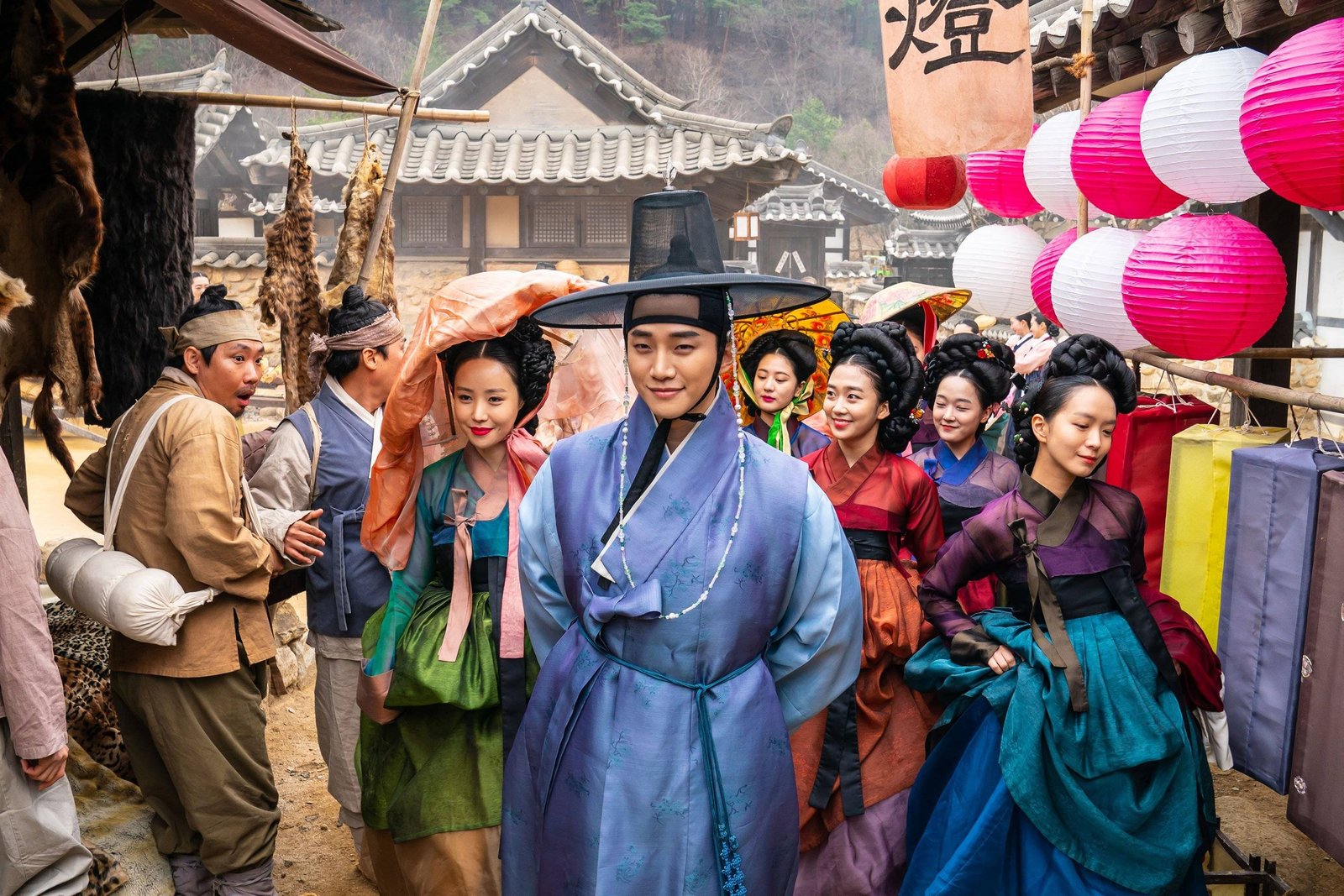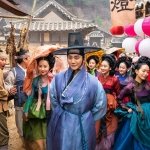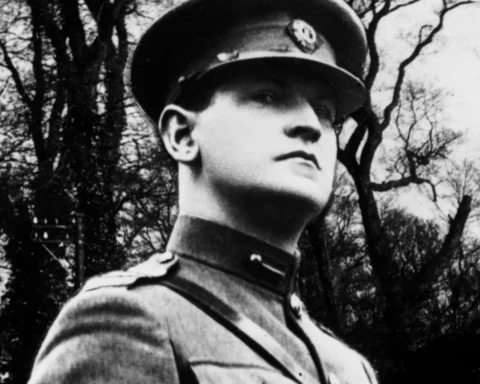I will take you on a time travel to once upon a time in the Joseon Dynasty of Korea, in a Gisaeng House;. It is a typical funhouse in Korean culture. The movie portrays the life of the first male Gisaeng, Heo Sek, played by singer-actor Lee Jun Ho of 2PM.

For those who are not familiar with what a Gisaeng is, I want to explain briefly before immersing ourselves in the story. Gisaengs are courtesan women dedicated to entertaining upper-class men. The earliest records of Gisaengs are from the Goryeo Dynasty of Korea.
Frankly said, although they are great entertainers and have an education almost equal to an aristocrat. They are also not very well-acknowledged and welcomed by society.
Becoming Gisaeng is a long path and during the Joseon Dynasty. The government wanted to have full control of Gisaengs by registering, educating, and monitoring their activities. Usually, low-ranked poor families sell their daughters as Gisaengs by the age of 8.
Also, a descendant of a Gisaeng had no chance to evolve in society. Other than serving as a Gisaeng, making the position a hereditary title.

The movie Homme Fatale comes with a plot twist! .We know by the historical documentation that the daughters of Gisaengs become Gisaeng. but how about the son of a Gisaeng? How does his life evolve in such an environment?
Our main character, Heo Sek, is born and raised in the Gisaeng House where his mother used to serve. Because his life started among Gisaengs, he is well educated in dance, painting, writing, and music. One day he overhears that the Gisaeng House is in trouble with debts. Then he decides to be the first male Gisaeng of the era.

Gisaeng Houses are for noblemen and women have no right to entertain themselves in such places. However, The rumors spread fast. Especially among the widowed women who are patiently waiting to have the “Virtuous Women” title upon the loss of their husbands.
These women, however, need emotional company and want to feel cared for even for a moment. Here, I would like to explain the role of “virtuous women” in the Joseon Dynasty. A powerful influence of Confucianism also gives some roles in how a “perfect woman” should behave.
An ideal woman should serve their husband at their best. The idealization of women became such an influence that widowed women face death sentences if they re-marry.
If women live according to the dedicated standards, they may catch a chance to have the government give them the dignified title of “Virtuous Women” and write their names in the Virtuous Women’s Hall.
This hype became so out of control that society was expecting women even to commit suicide upon the death of their husbands. Now you can understand not even “normal women” having fun in a Gisaeng House.
However women who are widowed entertaining themselves with a male Gisaeng instead of trying harder to be a virtuous woman brings catastrophic destruction to the order of governmental society.

Here comes my favorite part where we started to see the vulnerability of these women trying to be virtuous women, but deep inside we hence understand how lonely they are and how societal customs put them into certain shapes, behavior, and even dress codes. Nevertheless, these women were enchanted and obsessed with the talent and beauty of Heo Sek.
One day, love finds Heo Sek disguised in the shape of an innocent girl named Hae Won who makes him desire to get out of the Gisaeng identity. Love has a revolutionary power. Thus, Heo Sek stops serving as a male Gisaeng, but he tumbles into lies of a fake identity to get the attention of Hae Won, as he is a nobleman.
Maybe this is also his inner desire to be an upper-class male rather than a Gisaeng kid, which kills his chances of standing in society. He turns his face to study to become a translator, which gives him at least a possibility to leave the Gisaeng title and step into building a real fulfilling life with Hae Won.

As the story begins to reveal the problems that Gisaengs face in the system, the Gisaeng House loses one of their Gisaeng sister to suicide, which makes Heo Sek to snap out and have a catharsis. The comedy turns into a dark drama here and we are immersed in the hard truth of the societal organization and the brutal reality of the class system.
His previous talk with Hae Won already started to spiral in his mind the fact that he lied about his identity. A nobleman whom he has no chance to become, losing his sister to the relentless nonsense of a Gisaeng’s destiny.
He develops a rebel deep inside who wants to ruin all these absurd societal norms. Eventually, he burns down the “Virtuous Women’s Hall”.

He describes this social status for women as a prison which I strongly stand behind. Even today in this modern world, women need to live in certain descriptions defined by the authorities (!). Daily, thousands of women in the world lose their precious lives to domestic violence and sexual harassment.
The constant mobbing of the work environment, family affairs, and social media traumatizes them, deciding how a woman’s body should look like.
Thousands of girls are forced to marry a man they don’t want to. Their opinion on how they want to shape their lives has no value or validity. There are thousands of child brides in this world and the statistics show an enormous and disgraceful number of births given by child brides.
It is saddening to see. Even with all this modernization, we still position woman as a primitive object of lust to cease the hideous appetite of men. Heo Sek criticizes the world in tears. With the strong heartache of losing a dear sister to such unconscious societal customs.
He points out the endless lust of men for numbers of women. Women, on the other hand, need to serve only one husband who should be the world of the woman. In such a sense, after marriage, the identity of a woman becomes nothing but only a despair to serve her man.
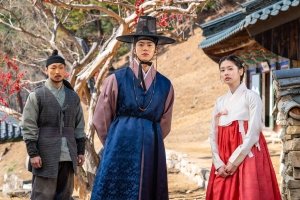
He apologizes in tears, “I did not see the depth of your pains.” Just for this sentence, I can write pages of pages things, but still, I am afraid it won’t be enough to explain the pain itself. But the great pain of a human soul should be hiding their authentic identity.
In such societies, our gender, religion, sexual choices, deep desires, and the person whom we truly, deeply are usually the reasons why we fall into the illusion of hiding ourselves.
This illusion creates turbulence in our emotional world. Most of the time, we just don’t know how to deal with it. Not being able to show who we really are, when time passes, even ourselves, we forget who we really are. Then the pain starts to burst in.
We reflect our pain through drugs, alcohol, sex, wrong relationships, a piece of art, a movie, music, or even a tattoo. Maybe we have forgotten the source of pain, but this does not change the existence of the pain.
While he apologizes to people in front of him, I somehow felt like he is also apologizing to himself, because he also deceived himself with a perfect illusion of a nobleman.
Maybe if he was honest about his identity, if he was able to find peace with whom he really is. If the society let him be who he is -a kid of a Gisaeng with a dream- the consequences won’t be like that.
His dream world allowed him to be a nobleman in harmony with the woman he loves. But in reality, he was a face of shame that only people visit to feed their desires and lust. In the street, he was nobody to be respected, not even cared about. Who was to blame for this?
While he is walking to burn himself among the flames of the Virtuous Women’s Hall, I needed to think of what he is feeling because the character reflected a pot-pourri of emotions in just one scene. The emotions I felt more familiar with were despair, sadness, regret, and anger;. Or maybe a glimpse of hope that sacrificing himself would change this cruelty.
Afterall Hae Won knew the truth.. He has deceived the woman he loves. But in this scene, I just cannot be angry at him at all. Because I can see the deepest desire in his heart . The desire that he just wanted to be a normal man . Who has the right to be with the woman he loves.
It is so sad to see him abandoned and disrespected due to his identity. Which takes his primary human rights away from him to even exist in society as a person. On the contrary, society addresses him as a low-status Gisaeng man who should be sentenced to death.
Lying on the ground with pain and shame, maybe he is blaming his destiny. Isn’t it like this in life? We blame the house we are born into, the culture, and the society that does not let us be ourselves. The punishment is faster than the acknowledgment.
A final face-off with his loved one brings up the emotions both try to hide. While she says “Your identity was not important to me!” he maybe thinks about why he did not have the courage to say who he really is. The answer for me is crystal clear…
He is not comfortable with his identity himself. thus revealing his reality may consequence in losing her. He is at a point he does not want to lose this beautiful dream however. We should not hid the reality. Reality hits our faces in the most important but unexpected situations.
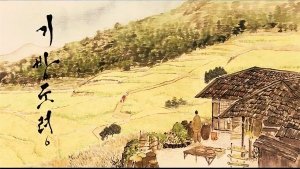
What is love? Why it is so hard to say those words?
He describes his love in those words:
The scent of the flowers that day
A sip of tea that day
The sound of water flowing that day
The touch of our lips that night
My five senses still remember our every moment together
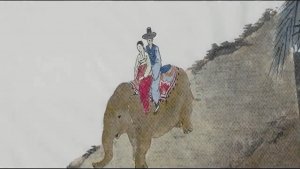
Pom rak khun*
*I love you in Thai Language, which he kept saying to Hae Won.

